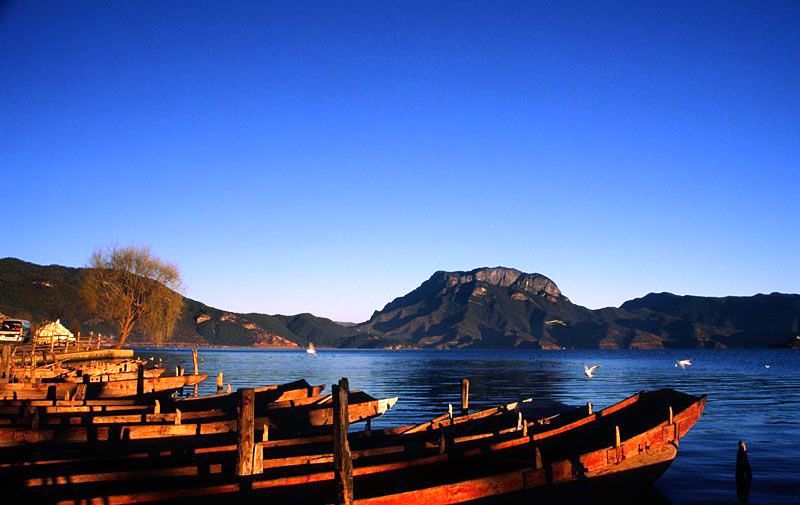Secret of a Walking Marriage Custom
Updated: 2007-06-13 08:50

It was American writer, botanist and longtime resident of Yunnan Joseph Rock who once wrote that the last peaceful place on the planet, the last place where war has never existed, where people live in harmony, is Lugu Lake. The lake is home to the Mosuo minority, one of China's 56 ethnic groups, hidden in the shadows of the Xiaoliang Mountains. Twenty - or even ten - years ago, the average Chinese would have had little desire to visit the remote area, bordering Sichuan and Yunnan. But in recent years, the lake has seen an influx in tourists, enduring tenuous train trips and bus rides for a glimpse at this unique matriarchal culture. And its famous selling point: zouhun (×ß»é).
The Allure of Zouhun
Some 40,000 ethnic Mosuo live in the Lugu Lake area in Sichuan Province . Since Mosuo people are governed through a matriarchic system, people also call the Lugu Lake women's land.
Men live a very idle life there. They don't do any farm or household work but play cards and Mahjong all day long. Women are the main work force in the house and they also do most of the farm work.
It is the practice of zouhun - walking marriage - that makes this community
marketable as a lakeside love haven. Mosuo people do not formally marry. Rather,
they carry a special "walking marriage" custom. A man and a woman can get to
know each other by singing love songs or contacting each other in their daily
life activities. If they fall in love, the woman might give the man a scarf
woven by her as a gift. When night falls, the man will visit his lover's house
with a piece of fat meat. When he arrives in front of the woman's house, he will
throw the meat to the dog to eat so that it won't warning people of his arrival.
Then he will go into the woman's house through the window. Before dawn, the man
will leave the woman's house. If the two still want to keep in touch, the man
can come again.
| 1 | 2 |  |

